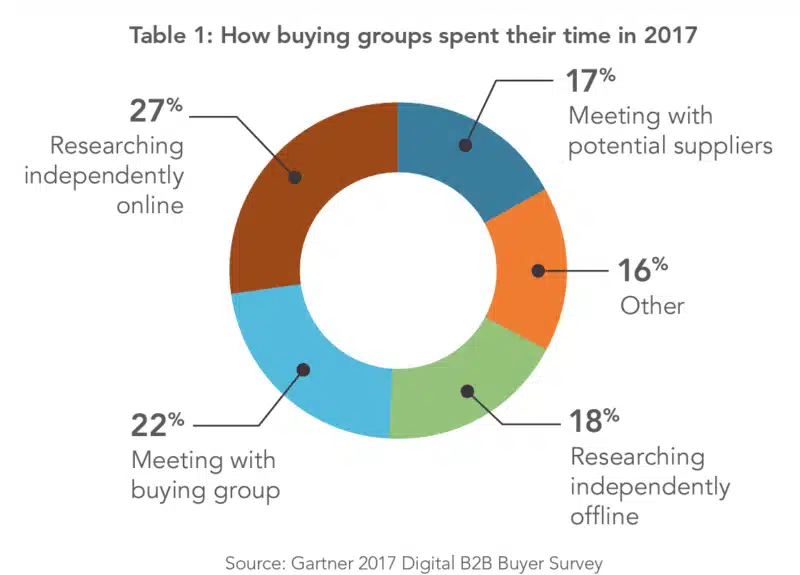Account-based marketing propelled forward by the pandemic
As B2B buyers changed the way they engaged with companies, marketers and vendors are using ABM to adapt.
We hear a lot about how dramatically the pandemic has affected consumer purchasing behavior, but the business-to-business side of buying is less frequently discussed. That doesn’t mean the pace of developments is any slower, however.
While researching the all-new updated MarTech intelligence Report on account-based marketing (ABM) solutions, which just launched, we learned about how B2B buyers are engaging with companies in the current environment, and how marketing technology providers are helping those companies turn prospects into customers.
While ABM has been used by B2B marketers for well over a decade, rapid advances in the sophistication and accessibility of relevant data – and in technologies that enable ABM – are fueling more widespread adoption of this approach. Another driving force, which I mentioned at the start, are fundamental changes in the B2B buying cycle — shifts that the COVID pandemic accelerated as events and in-person meetings went virtual.
For some time, B2B buyers have conducted a lot of research online before talking to a salesperson, and the vast amount of information available has given the buyer an upper hand. The lockdowns, cancelled events and work-from-home trends that have characterized the pandemic period have contributed to this phenomenon.

Digital engagement, Salesforce notes in its “State of the Connected Customer” report, “has hit a tipping point this year, with an estimated 60% of interactions taking place online, compared to 42% last year.” The company expects this trend to become part of the “new normal” post-pandemic. Its survey showed that 80% of business buyers expect to conduct more business online after the pandemic as compared to before.
At the same time, the number of influencers involved in B2B purchase decisions has increased, leading to a longer and more complex buying cycle. The median B2B buying group involves six to 10 decision makers, according to Gartner, and 77% of buyers surveyed say purchases “have become very complex and difficult.”
For more on what we learned, as well as profiles of individual vendors of ABM solutions, download Account-Based Marketing Tools: A Marketer’s Guide.
Account-based marketing: A snapshot
What it is. Account-based marketing, or ABM, is a B2B marketing strategy that aligns sales and marketing efforts to focus on high-value accounts.
This customer acquisition strategy focuses on delivering promotions — advertising, direct mail, content syndication, etc. — to targeted accounts. Individuals who may be involved in the purchase decision are targeted in a variety of ways, in order to soften the earth for the sales organization.
Why it’s hot. Account-based marketing addresses changes in B2B buyer behavior. Buyers now do extensive online research before contacting sales, a trend that has accelerated during the COVID-19 pandemic. One of marketing’s tasks in an ABM strategy is to make certain its company’s message is reaching potential customers while they are doing their research.
Why we care. Account engagement, win rate, average deal size, and ROI increase after implementing account-based marketing, according to a recent Forrester/SiriusDecisions survey. While B2B marketers benefit from that win rate, ABM vendors are also reaping the benefits as B2B marketers invest in these technologies and apply them to their channels.
Dig deeper: What is ABM and why are B2B marketers so bullish on it?
MarTech is owned by Semrush. We remain committed to providing high-quality coverage of marketing topics. Unless otherwise noted, this page’s content was written by either an employee or a paid contractor of Semrush Inc.
Related stories